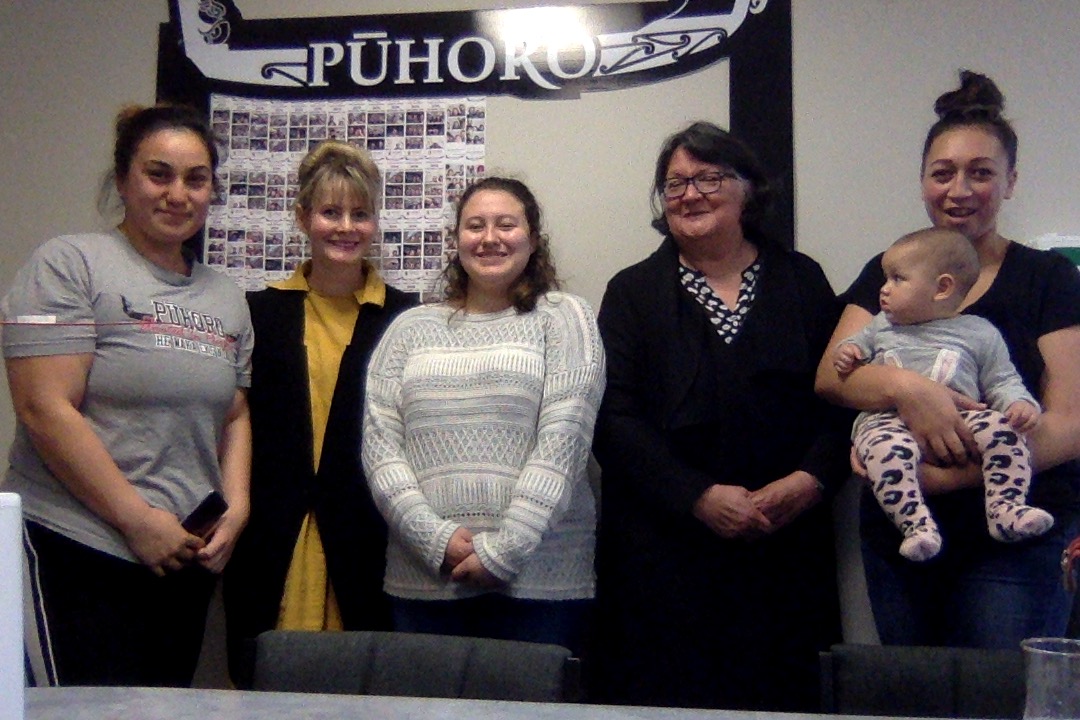We’re so excited to announce that Sarah Lewis is our inaugural recipient of the HERA Whanake Scholarship.
Sarah is studying a Bachelor of Engineering, majoring in mechatronics at Massey University in Palmerston North. She is also a graduate of the Puhoro STEM Academy.
After meeting her on a recent trip to the rohe (area), I know she is the perfect candidate for our Whanake scholarship. Especially as we start our journey towards more meaningful engagement with Māori in Engineering!
Why is it important to support Māori and female engagement with engineering?
There wouldn’t be a member that I speak with that doesn’t raise the skills gap as an issue.
I don’t have the statistics for New Zealand, but I believe we are entering a skills crisis.
In the US, for example, by 2025 2.7 million baby-boomers will be retiring leaving an unfilled manufacturing workforce of 2 million people. Currently it already is in the vicinity of 800,000 unfilled positions.
There is more than 50 years worth of research that validates that firms with greater diversity perform better than those that are more homogenous. We must therefore take advantage of every opportunity to access skills that reflect our societal composition.
Currently, in New Zealand, women comprise only 16% of the Engineering workforce. And Māori wahine probably comprise a very small fraction of these.
How Māori participate in a high value STEM economy of the future is a challenge we should all embrace. He waka eke noa (we are all in this together).
“Despite being a first world country, our education system is like a leaky pipeline that bleeds Māori potential at an alarming and unsustainable rate. Many young Māori are failing within the system to achieve or attain sustainable qualifications, limiting their future options, income and opportunities. This creates both social and economic harms for Māori to be active participants within our wider society” according to the Pūhoro STEM Academy.
Māori make up just 2% of the science and technology workforce, wahine would be completely under-represented. Only 8% of Māori are going into academic STEM related pathways at schools. There is a massive issue here and HERA believes it is a challenge for everyone to proactively work together to address.
Why did we choose Sarah?
Sarah understands well the diversity of skills that are required to make an Engineer successful.
Saying “While it is important to be skilled in specific fields for all types of careers, engineering or otherwise, it is also equally important to have soft skills such as communication, teamwork, creativity and time management.”
“I believe it’s crucial for engineers to be skilled communicators as they have to speak with a variety of different people from clients to peers. An engineer should have the ability to communicate ideas accurately and freely in a team in order to get the best solution possible, and should also have the ability to work within that team too.”
“To me, being creative and flexible when approaching problems is just as important as communication and teamwork. It allows engineers to think of new innovative solutions that may not have been considered before.”
In our interview with Māori graduate, Byron Konia, on our Stirring the Pot podcast, we also identified some of the challenges facing Māori entering University and in applying for scholarships.
We certainly experienced these in promoting the Whanake scholarship. It is said that men will apply for role if they meet 60% of the criteria, and women if they meet 99%… it seems like Māori won’t even apply when they meet 100% of the criteria! This creates an additional challenge as it means we need to think of new ways to encourage participation and engagement.
What plans do we have for Sarah and how can you play a part?
We’ve already lined Sarah up to spend her first annual internship at HERA. She’ll assist with a technical project as well as developing our Māori student engagement program. We’ll regularly check in with her on her progress and experiences as a student… and we’re also thinking to maybe even create a blog.
Due to her unique position as a wahine in Engineering, we want to profile her as a role model for future women and Māori in Engineering.
For us, our Whanake scholarship is one step forward in our journey towards more meaningful engagement with Māori in Engineering. Having Sarah on-board is definitely an exciting opportunity to learn first-hand how we can make more of a difference.
If you’re interested in engaging with the development of our Māori in Engineering program, please don’t be backwards in coming forwards. Make contact with me today!
If you have any Māori employees that you think we should shine a line on, please let us know. Also, if you’d like to create or support a scholarship for Māori in Engineering or Manufacturing, please contact the Māori Education Trust, who’d be happy to manage this for you!

